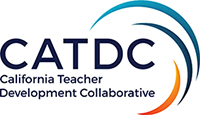The Social-Emotional Challenges of Returning to Campus

It is hard to believe that it has been over a year since we closed our schools and waved goodbye to our students and families at the start of this pandemic, naively assuming that our separation would be an inconvenient bump in the road and not a long-term situation that would require incredible dexterity, patience, and innovation to overcome.
While some schools across the country have been able to serve students in-person for some time, here at Turning Point, a Preschool-8th grade independent school in Culver City, we have only recently been able to bring students in middle school back for in-person learning in the last few weeks—and the effects of the extended time apart have been profound, sometimes in more ways than we anticipated.
In my role as Assistant Head and Middle School Head, I can hardly describe the deep joy I feel hearing our students’ voices in the hallway and seeing them in their classes and outside on our field. It is also a great relief to be faced with the typical “shenanigans” that are part and parcel to middle school life. At the same time, I am struck by the complex range of emotions observed in children and parents alike during this transition.
Coming back together on campus after missing a year of interacting with each other is a big adjustment for all. There are new (and often uncomfortable) protocols to adjust to, authority figures outside of parents who need to be minded, and social dynamics that require “real-life” navigation. Not to mention that students no longer have the option to turn off their cameras or walk away from a screen. It is no wonder this “return to normalcy” has felt so murky and difficult.
It seems trite to say that these things take time. In a “normal” year, all the learning that takes place is an ongoing process, where each new concept or lesson builds on the next; this is true for social-emotional as well as academic growth. With the help of Zoom and other tools, schools have managed to continue the academic learning process over the past year; however, the social and emotional parts of this process have been significantly interrupted.
At Turning Point, as in many independent schools, our schedule and program are specifically curated and implemented with social-emotional skills and mindsets as top priorities; these include check-ins about feelings, carefully designed lessons on the importance of embodying a growth mindset, units on conflict-resolution and intent/impact, and Open Sessions where students share problems anonymously and are encouraged to provide wisdom, advice, or seek clarity. As with many of our peer schools, our focus on these competencies is as strong as it is on the teaching and learning in core classes.
This social-emotional learning focus validates the shared interests we as educators have with parents—the thing we want most in the world is to see their children (our students) thrive. We want them to think for themselves, act without malice or influence, and respond with confidence to any challenge they face. With shared interests, comes shared concerns: How can we best support their development amid this particularly challenging year?
Students are acutely aware that in addition to a global pandemic, we have faced an insurrection at the US Capitol and are in the midst of a movement for racial justice, ongoing anti-Asian violence, a resurgence of mass shootings, and other upsetting news. And underneath and in parallel to these worries about these situations, all the “normal” challenges of the teen and pre-teen years are still present.
Puberty, self-consciousness, changing friendships, a quest for autonomy, and undergoing brain changes can all cause intense reactions in middle school kids. In any given year, we expect them to vie for validation from peers, seek independence from their parents, be vocal about their strong convictions regarding fairness, and be challenged by balancing their workload with social pressures. They are going through all these things this year, as well; we must check our expectations regarding their ability to apply the coping skills needed to accomplish all this in the context of the current world and after such an extraordinarily long time away from each other and the practice of the everyday interactions.
In any given year, I would advise parents to avoid being susceptible to what our Head of School, Dr. Laura Konigsberg, aptly refers to as the “vicissitudes of middle school life.” This can best be described as a roller coaster ride fueled by raging hormones, overexcited amygdalae, and notoriously bad judgment due to the rapid pruning of neural connections.
And since we know the stress and anxiety of the past year affects adults just as well as it does children, parents often need to be reminded not to jump on the roller coaster with their children. Rather, we encourage parents to cheer them on from the safety of the ground instead. To hold the barf bag when they come off the car feeling extremely nauseous. To help them find a calm and quiet place to sit when they want to get their land-legs back. If both the parent and the child are screaming wildly, sick to their stomachs, and feeling imbalanced, then no one can keep the horizon in perspective and regain equilibrium.
Family therapist and long-time friend of Turning Point, Sheri Glucoft Wong, gives terrifically simple advice about how to provide steadiness after such a roller coaster ride. Perhaps the ride entailed a report that a teacher is evil, that a friendship is on the terminal rocks, or that the subject matter they are studying is boring and pointless. She advises parents to simply respond with, “Hmmmm.” And then ask, “What do you plan on doing about it?”
Ms. Glucoft Wong tells us that reflective listening empowers students to solve their own problems and is the best gift we can give them. Just as important is to ask them if they want advice or help before it is offered. Then, listen, reflect back, and empower them all over again. Ms. Glucoft Wong also says that kids must exercise their disappointment muscles to develop resilience.
When parents ask me for tangible ways they can support their children through this process, so that they have the best launching pad for being able to show up at school as their best selves, I suggest that they center in on the following:
· Relationships – Support healthy interactions
· Sleep – Make sure they get enough (without devices in the bedroom)
· Reduce Screen Time – Now the balance should be easier without as much Zoom!
· Promote Physical Activity – 60 minutes per day
· Nurture a Growth Mindset – Knowing that there’s room to improve breeds optimism
· Model Mindfulness – Encourage calming and reflective activities
As educators and as parents, these are tangible, feasible actions we can take for our kids—and for ourselves. As much as we give students the time and space to adjust to this “new normal,” we must give each other time, too.
The partnership of educators and parents is so integral; together we must uplift our children and hold optimism at the core of their resilience. It will get better, and we can empower them, and each other, to persevere.

Gaby Akana began her tenure at Turning Point School in 1996 and has worn many hats in the classroom and as an administrator. She is currently serving as the Assistant Head of School and Middle School Division Head, where her past experiences as a teacher and in administrative roles have shaped her broad perspective of education. She is particularly passionate about mission-driven initiatives such as thoughtful technology integration, service learning, global competence, and inclusion. She received her BA in Social Sciences/Cultural Anthropology from UC Irvine and her MA in Education from Pepperdine.

Great advice and perspective which would help parents to navigate their families through the watershed year(s) we are having to endure, this is not an easy task and wears on parents and children in a manner we have never seen before. Hopefully girding us for the trials of this uncertain complicated timeline we are living in.
Thank you Gabi for this sage and thoughtful perspective.